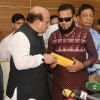A fresh graduate’s guide to entering and navigating the banking sector

For many, banking is a coveted career path with various perks including satisfactory pay, a healthy work-life balance, and other fringe benefits. The banking sector in Bangladesh has experienced substantial growth in recent years, offering a plethora of entry points for young professionals.
Government and private banks offer entry-level roles such as officers (probationary officer, assistant officer, cash officer, etc.) and contractual executives. Typically, an undergraduate degree is the minimum qualification you need to apply to a bank job. The minimum requirements, however, may vary significantly depending on the position and institution you are applying to.
While it is a common conception that a closely relevant degree or major, such as Finance, Management, Accounting, or Business Administration, is the only path to a career in banking, it is also true that STEM and Humanities graduates and professionals have a considerable presence in various vital roles within the sector.
Abdullah, a management trainee at a reputed private bank in Bangladesh, says, "While some areas, like corporate banking and treasury, might pose greater challenges due to their specialised nature, individuals from non-business backgrounds have successfully navigated these roles."
Know that many employees these days come through various management trainee programs, where your field of study is not an essential factor.
In addition to formal educational qualifications, strong analytical and quantitative skills, computer skills, and proficiency in English and Bangla may strengthen your chances of landing a banking job.
"At present, banks are especially interested in graduates with good computing skills. Also, having an advanced understanding of Excel adds to their CVs," says Fahima Akter*, a senior principal officer at a reputed private bank in Bangladesh.
It is essential to keep an eye out for job advertisements published by banks in newspapers, in the career sections on their websites, or on the Bangladesh Bank's official website. After you find the positions that you're interested in, read the job circulars to understand the requirements and deadlines. Filling out the application form may require you to submit several supporting documents, including academic certificates, national identification cards, passport-sized photographs, and so on. Therefore, you must have these documents ready beforehand.
If your application is accepted, the banks will notify you of the examination date, time, and venue details. The exams usually contain multiple-choice questions and written sections. The exams test candidates on different topics, including, but not limited to, General Knowledge, Mathematics, English, Critical Reasoning, Analytical Ability, and Written Communication. Applicants demonstrating strong performance in the written tests will be invited for an interview with the bank.
"Preparing for the interview includes researching the bank's background, functions, recent financial developments, and current affairs related to the banking sector," says Arif Hossain*, a human resources administrator at a renowned private bank in Bangladesh.
After completing all these selection stages, the bank will publish a final list of successful candidates. If you are selected, you will receive an appointment letter specifying the terms and conditions of your employment. Then comes the need for you to adjust to the bank's working environment.
"One of the major challenges of working at a bank is getting accustomed to the workplace culture," says Abdullah. "Banks generally have a rigid corporate culture. Moreover, the nuanced financial terms can be a little challenging to get used to at first. These challenges are amplified for people who are from non-business backgrounds. However, with time, one can get adjusted to these initial challenges."
Fahima adds to Abdullah's comments saying, "Working at a bank can also feel demanding, especially in the initial phases of your career. As for the pressure, freshers can expect a decent amount. Initially, it is more about learning how everything works in this sector. Once the training period ends, recruits may feel slightly more comfortable working at the banks."
While the working environment can feel rigid to many, the work can be dynamic; adaptability will often be expected of you. There are many regulations and guidelines from the regulatory body that keep updating constantly, and you are required to keep up with them. You also have to do a lot of reading and learning on the job. When asked if there was something he wished he had known earlier about having a banking career, Abdullah said, "One thing I wish I had known earlier was the sheer amount of studying I would have to do and how it would be an ongoing process for the rest of my career."
"You should be aware that once you decide to take up the job, you can be posted anywhere in the city or any branch in the country. Hence, if you want to enter this field of work, be prepared to relocate and adapt when necessary," says Fahima.
Working at a bank can be a rewarding experience for many, offering a dynamic environment filled with opportunities for growth and professional development. At the same time, this line of work can get pretty challenging, especially for freshers. However, those who want to stick to this field and develop their careers here always find a way to embrace the challenges and take the opportunities whenever they present themselves.

 For all latest news, follow The Daily Star's Google News channel.
For all latest news, follow The Daily Star's Google News channel. 










Comments